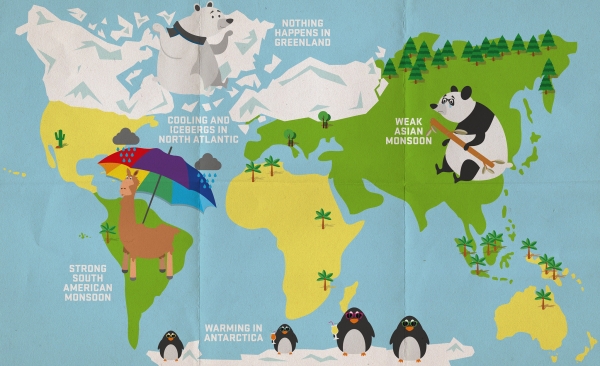During the last ice age, massive icebergs periodically broke off from an ice sheet covering a large swath of North America and discharged rapidly melting ice into the North Atlantic Ocean around Greenland, triggering abrupt climate change impacts across the globe.
These sudden episodes, called Heinrich Events, occurred between 16,000 and 60,000 years ago. They altered the circulation of the world’s oceans, spurring cooling in the North Atlantic and impacting monsoon rainfall around the world.
But little was known about the events’ effect on nearby Greenland, which is thought to be very sensitive to events in the North Atlantic. A new study from Oregon State University researchers, just published in the journal Nature, provides a definitive answer.
Read more at: Oregon State University
Photo Credit: Oliver Day, Oregon State University.


